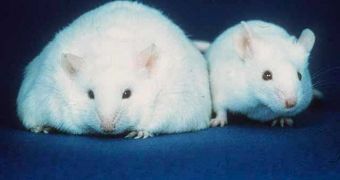In a finding that could help explain why changing public attitudes towards obesity may be so difficult, researchers have determined that the negative attitudes many people exhibit towards people suffering from this condition may be founded in feelings of disgust. These attitudes are therefore an emotional response, and this should in the near future serve to better inform those seeking to elaborate measures of curbing negative attitudes towards obesity.
The conclusions of the new research are quite different from those of previous work, which focused more on how slender people view obese individuals from other perspectives. Generally, the public conception is that negative attitudes towards fat individuals come from the belief that this subgroup is lazy, and also unable to exercise self-control. But the new work is the first to look at things differently, and the attempt paid off. The detailed results appear in the latest issue of the esteemed scientific International Journal of Obesity, PhysOrg reports.
“Although the scientific community acknowledges biological, behavioral and social contributors to body weight, a common belief in society at large is that one's body weight is almost infinitely malleable. The problem with this idea of willpower is that we chalk it up to a moral weakness,” explains Dr. Lenny Vartanian, who is a psychologist at the University of New South Wales, in Australia. In other words, it would appear that slender people who pass on moral judgments of others do not base their reasoning on logic, but rather on an emotional response triggered by the sight of obese individuals themselves.
“Attractiveness standards have shifted over time, with more curvaceous figures being preferred in the beginning of the 20th century and again in the 1950s, but more slender ideals being prominent in the 1920s and continually since the 1980s. In parallel with this latter trend, attitudes toward obese individuals are worse today than they were 40 years ago. It is possible that these body-type preferences over time have also become moral values, and that those who violate this moral value elicit a disgust response. Efforts to change negative attitudes toward obese individuals, therefore, might work toward reversing this moralization process and reducing the moral value placed on leaner body types,” the expert concludes.

 14 DAY TRIAL //
14 DAY TRIAL //